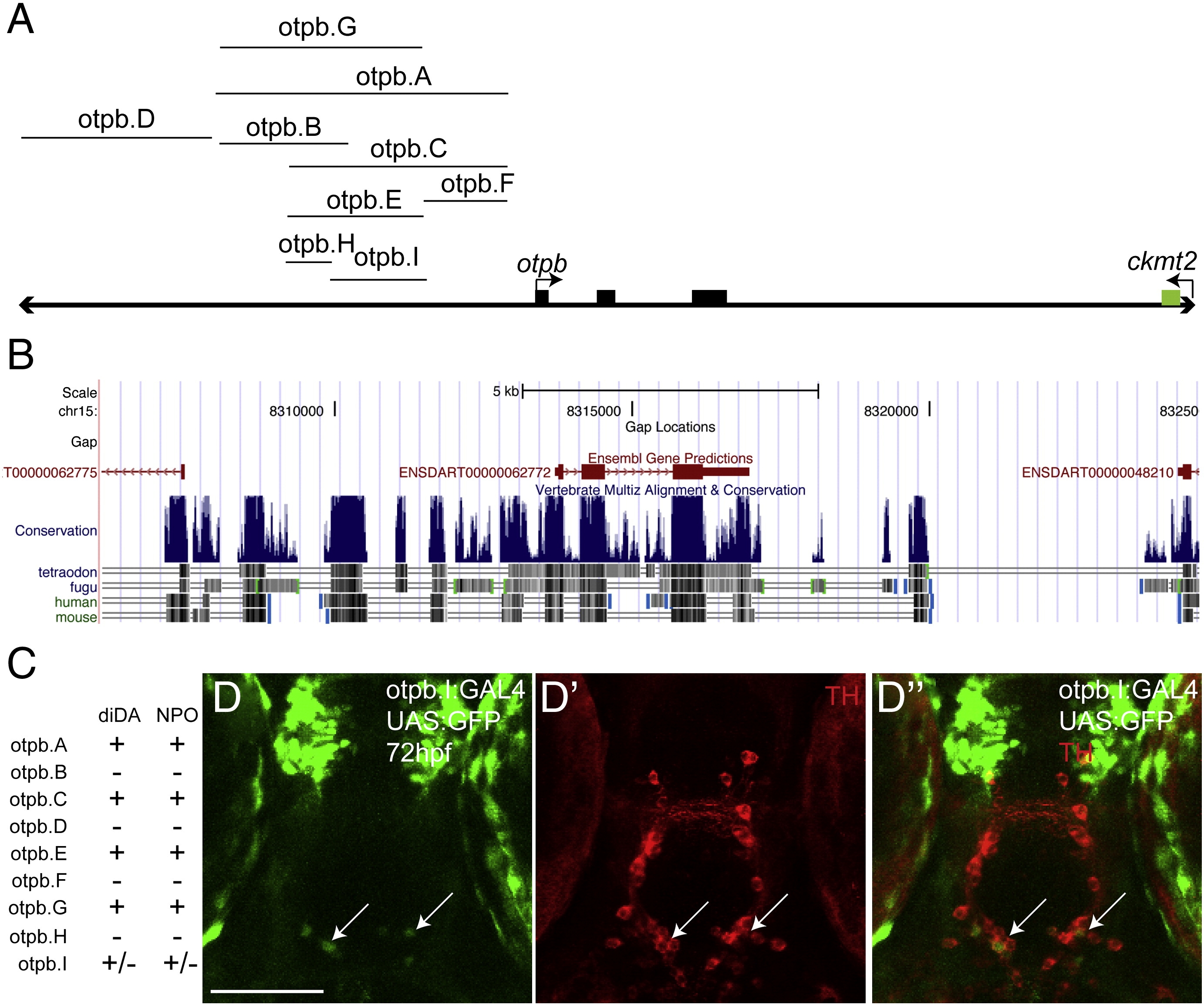Fig. 5
Genomic structure and characterization of otpb genomic locus enhancers. (A) otpb genomic region (not to scale). Coding exons are shown as solid black boxes. DNA fragments tested for enhancer activity are shown. Region pictured is approximately 20 kb; 32-most exon of ckmt2 is shown. (B) Screenshot from the UCSC genome browser (http://genome.ucsc.edu) showing the location of the exons of genes, relative to regions of cross-species conservation (shown as vertical blue lines). Increasing conservation is indicated by increasing height and/or density of the blue lines. Species used to determine the conservation are shown below. (C) Summary table of expression patterns of the different enhancers at 72 hpf in the CNS with respect to expression in the diencephalic dopaminergic neurons (diDA) and neurosecretory preoptic nucleus (NPO). (D–D3) Confocal z-stack projection of whole-mount Tg(otpb.I:GAL4)zc57 embryos at 72 hpf, shown crossed to Tg(UAS:GFP) and double-labeled for GFP (D) and for TH (D2) immunohistochemistry, ventral views, anterior to the top. Arrows point to the sparse diDA neuron expression.
Reprinted from Developmental Biology, 352(2), Fujimoto, E., Stevenson, T.J., Chien, C.B., and Bonkowsky, J.L., Identification of a Dopaminergic Enhancer Indicates Complexity in Vertebrate Dopamine Neuron Phenotype Specification, 393-404, Copyright (2011) with permission from Elsevier. Full text @ Dev. Biol.

